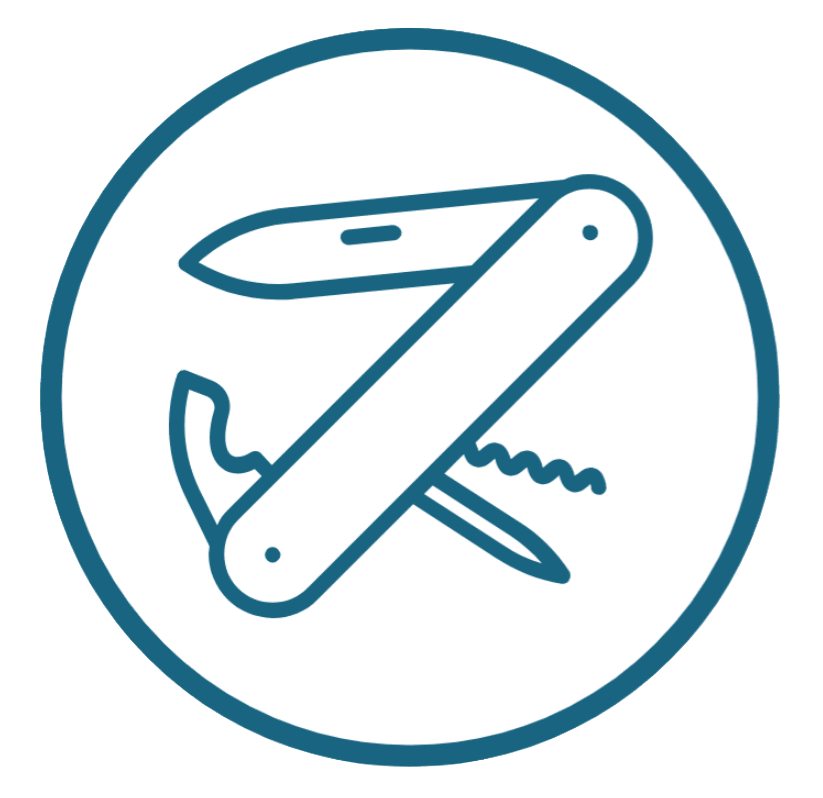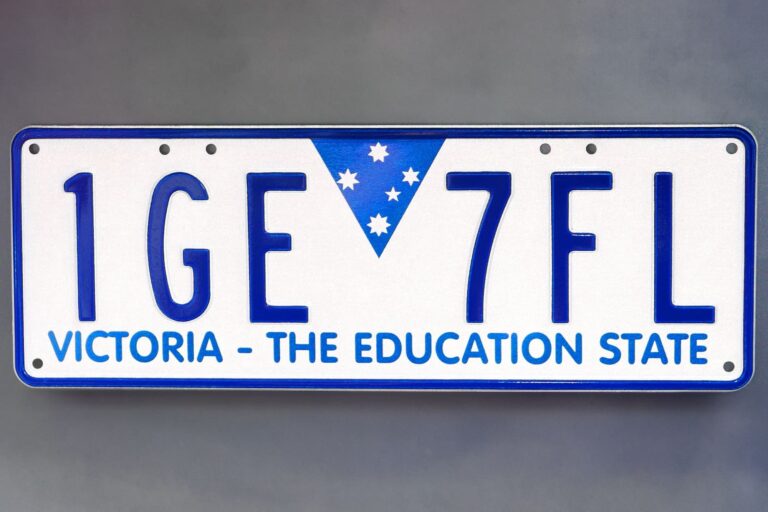How to (and Why) Make Money from Hobbies
One of the things I find most frustrating about 9-5 work is that we’re supposed to put things we love — family, friends, and hobbies — on hold for the best hours of the day, which we donate to someone else in exchange for being able to simply live. (It’s one of the things I call a lie society tells us.)
But I don’t think life needs to be organised that way. We should be able to organise our lives around the things we love. And for me, what we call “hobbies” are a big part of that.
When you pick up a hobby you truly love, if you’re anything like me, you get obsessed. You learn everything about it, talk about it constantly, and let it get in the way of things that people tell me are more important, like work, education, or other pedestrian life commitments like doing the laundry or a pile of pending paperwork.
But I know that there are people who spend their entire lives involved with their hobbies. They do their pastimes professionally or have jobs or businesses that are related to them. It seems like a fantasy.
If you’re fascinated by this idea, then you’ve probably wondered the same things I have:
- How can we make a living out of our hobbies?
- How can we organise our lives so that we maximise time doing what we love, and minimise time doing the menial tasks to give us food and shelter?
- And — maybe most importantly — is this an acceptable way to live one’s life?
If you’ve wondered these things too, then you might enjoy this exploration of the topic of how — and why — you could (and maybe should) make a living out of your hobbies.
What this article is NOT:
- A list of hobbies that make good money (yes, it’d be lovely if your hobby were flipping houses…)
- Generic suggestions for making money from things like social media or taking photos
- Some lame ideas of side hustles like getting paid to play games or write reviews
Reflection: What Are — or Were — Your Hobbies?
Most people have hobbies — or have had them in the past. These can be small things that we enjoy doing in small doses, which is quite common.
But what I’m interested in exploring are our obsessive hobbies. What are (or were) the hobbies that you would have poured your life into, if it weren’t for life’s other obligations?
Think about hobbies into which you’d get so involved that you forget to eat, about which you always talk people’s ears off, and that you want to share with everyone. They may have been things that kept you away from your life’s obligations, like work, study, or family.
I’m not talking about addictions, by the way, like gambling or alcohol, over which we have no sense of control. Hobbies are pastimes that you can stop doing at any time, that take you into a “flow state“.
Over my life, I’ve had hobbies spanning several fields. A few things I enjoy and to which I’ve dedicated a lot of time include:
- Coffee making (roasting and brewing specialty coffee)
- Language learning (I’m a hyperpolyglot)
- Combat Sports (Boxing, Muay Thai, Jiu Jitsu / Grappling / Wrestling)
- Weightlifting / CrossFit
- Cars and Motorcycles
- Piano and Guitar
- Bread making, and generally cooking to a lesser degree
- Photography
The links above are articles about why I got into those activities. I don’t do all these anymore (at least not obsessively), but I still do some of them.
Of course, that’s just me. Some hobbies of people I’ve spoken to, who want to spend all their time doing these things, include
- Dancing (ballroom, Latin, etc.)
- Yoga
- Aviation (i.e. they’re pilots)
- Sailing
- Trail running
- Painting
- Pottery
- Singing
- Photography
You might read the above list and immediately think of people who do those things and always want to talk about them. They seem “obsessed”. You might also relate to one of them yourself!
The list may also remind you of hobbies that you may have had in the past before they got overtaken by adult commitments. It might take you a while to think of them, because you just haven’t had time to do them in so long.
Why Dedicate Your Life to Hobbies? (Also, Is it OK?)
It’s worth considering why we should dedicate our lives to things we do for fun. And also, why it’s OK to do so.
The main reason we should is because our pastimes bring us joy. When we spend more time on our hobbies, we perform better, are happier, live longer, and everyone around us benefits.
But the idea of spending all our time doing something that’s “fun” just seems wrong to many of us.
If you’re from an economically traditional background (maybe a working-class family, or immigrants from somewhere, as in my case), dedicating your life to hobbies may sound indulgent.
Typical advice given to me — and maybe to you — was: “Get a responsible job that makes money, and do hobbies in your downtime. ” A job would include something like labour, exchanging your skills and time for money, working for someone else.
But at the same time, when you go do your hobbies, you’re paying someone else. When you go the gym, you’re paying a gym owner and coach. When you go to the camping store to get ready for a big trip, you’re paying workers who get to play with that stuff every day. And when you go to the motorcycle store to ogle at all the new models, you’re talking to salespeople who get to ride them home for free.
So, clearly, someone is getting paid to be involved with their hobbies. Why can’t that be you?
If you find the idea of working in the field of your hobby challenging, consider picking somewhere along a scale of commitment that suits you.
This brings us to the next question: How can you get more involved with your hobby as your life?
How to Make a Living From Your Hobby
When we get involved with things we love, we pick somewhere along a scale of commitment. To simplify this scale, I think of it as three levels:
- Performing it
- Supporting it
- Working in it
Performing: The most committed professional hobbyist just does the hobby. For example, if you like cycling or running, then you’d cycle and run as your job as a professional athlete, and find a way to make it pay – e.g. through sponsorships, a team, or a YouTube channel where people follow you.
This is the hardest level. It’s competitive and you have to be really good to do it. I personally don’t know any full-time professional hobbyists — but I know they exist, like professional fighters, motorcycle racers, and so on.
If you’re self-sponsored — like, you have your own YouTube channel — then you need to be good at your hobby, and you also have to be good at producing content. If you’re sponsored by others, then you need to find people to sponsor you.
Either way, doing your hobby as your job becomes akin to running a media business where you’re own producer. So you do need to develop another skill (marketing) aside from the actual activity you perform. If you’re naturally a good salesperson, that won’t be too hard.
The next level of commitment, supporting, is to have a business related to the hobby.
Again, continuing considering cycling or running, you might start a business that
- Makes a product for cyclists or runners, like gear or snacks, or an app to track progress. Some examples are my friend Dan who runs Green Monkey, a business that makes cycle gear, or my friend Andy, who makes healthy snacks that support his trail running obsession
- Provides a service for cyclists or runners, like accommodation, a café, online business management, or therapeutic services, or
- Sells things related to cycling or running, like in a bicycle store or gear shop
There are many other businesses you can start that support an industry. The more involved you are in your hobby, the more you’ll start to sniff out those opportunities. For example, my friend Jenn was sick of not having a good answer to the question of “What are some dance shoes that are dressy enough to wear to my wedding / what are some wedding shoes that I can dance in?” and so is designing exactly that (details forthcoming).
Finally, working in your hobby. The final level of commitment is the most conservative, but the easiest — a job. You can just get a job in the industry!

You could become a salesperson at a bicycle store, or maybe a marketing analyst in a running goods company.
My friend Sachin is obsessed with cricket. I knew him in a strategy consulting company, a place where I really didn’t fit in. Sachin got a job working in strategy and business ops at Cricket Australia and was over the moon.
Similarly, my friend Omeed was obsessed with games. He, too was a business type guy, all MBA and McKinsey and so on. He got a job with Riot Games, and later with the gaming division at Microsoft, and is in his happy place.
So, you can choose your level of involvement with a hobby.
In all those situations, you’re involved in the thing you love to a different degree. Different levels of involvement will make you happy.
Once you’re in the industry, you might feel like a different level of involvement suits your personality better, or maybe your phase of life. If you start off as an athlete, you can migrate to owning a specialist sports café or working as a sports commentator later, for example.
The Paradoxical Difficulty of Changing Careers to Work In a Hobby
There’s a little paradox in the idea of transitioning to focus on a hobby in that it’s hard to do once you’ve started your career at all.
Have you ever read stories of someone who throws in the towel working in a law firm to wax surfboards in Hawai’i? They’re nice to read, because they’re shocking — they’re rare, because they’re difficult on many levels.
Once you’re somewhat down your career — say you have finished your degree and have started progressing through the entry levels of your first job — you have a perception of sunk costs. You’ve come this far, and you’re pretty good at what you do, so… why not continue?
So a lawyer who likes motorcycles, as random, non-personal example, might consider becoming a lawyer for a motorcycle firm. But guess what — that job is mostly law, and mostly not motorcycles. Would that person be that much closer?
On the other hand, if you were to throw in the towel and just start working as a motorcycle salesperson, you’d be much closer to the action. It would take swallowing your pride and learning to work in a much more entry-level job. But ultimately, it might be worth it.
What We Do
My main hobbies are language learning, motorcycles, and martial arts / combat sports.
In the past, I’ve also been obsessed with coffee and photography. Coffee is what led me to make an app, Pilgrim Coffee (here’s that story), though I never did anything with photography.
I have chosen to make blogs and apps for my hobbies, but there’s more I can do, too. In the future, I might own a motorcycle business (a custom shop or a dealer), or maybe a martial arts gym. It depends which opportunities present themselves to me!
I’m constantly tempted by other business ideas. Simple things like owning a carwash or vending machines, or complex things like trying to get rid of real estate agents by making it very easy to buy and sell a house online.
But all those are beyond my knowledge. Even the idea of a motorcycle dealership is very different from just buying and selling bikes.
So I’m going to stick to what I know. Even if I end up getting a job — it’ll be in an area that I love. In that way, it won’t feel like work at all.







